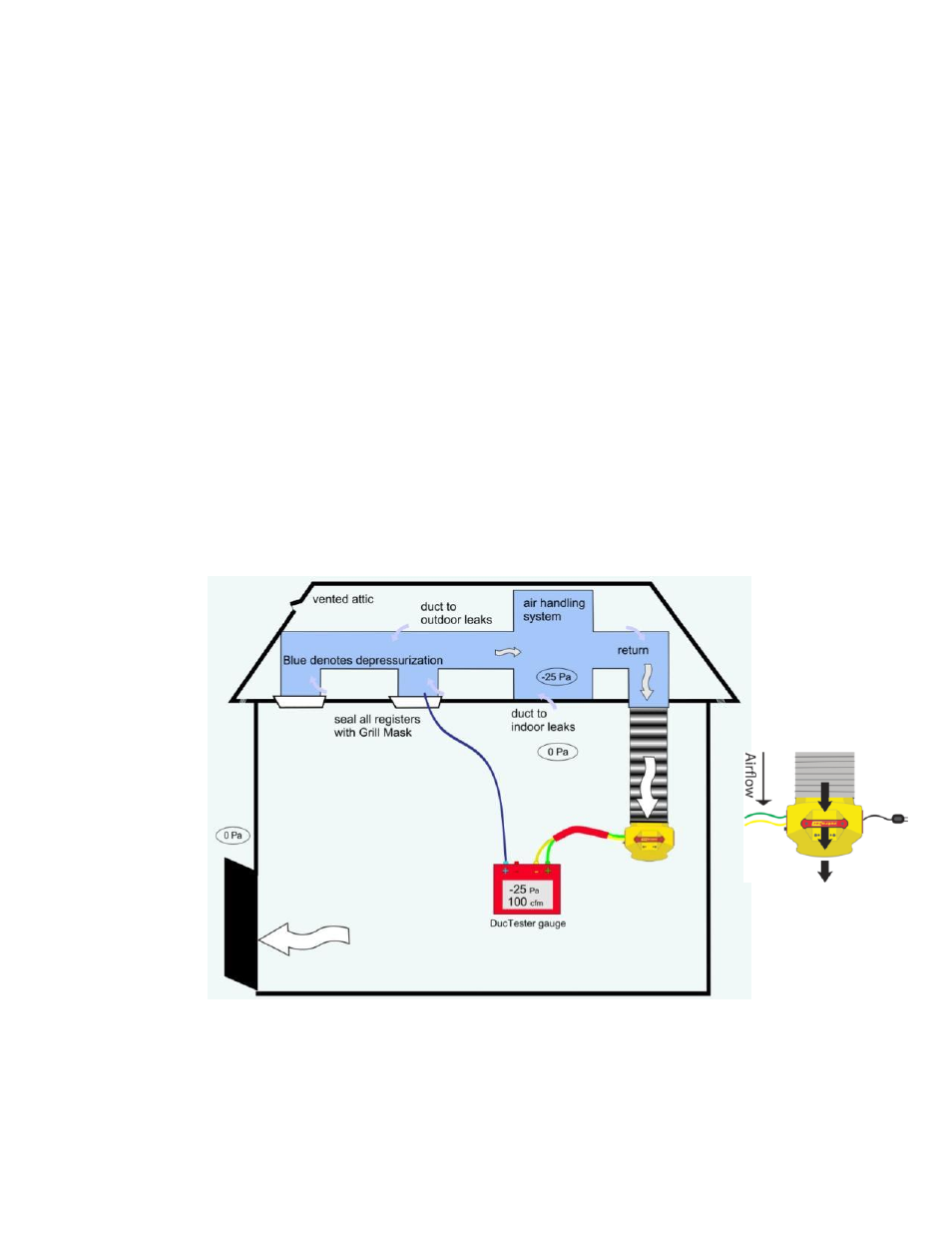Conduct the duct leakage tests, Total duct leakage – Retrotec DucTester 200 Series Residential Applications User Manual
Page 35

Page 35 of 91
©Retrotec Inc. 2015
5. Conduct the Duct Leakage tests
5.1 Total Duct Leakage
A Total Duct Leakage test measures the total amount of air leakage from a duct system. This includes
leaks to both conditioned spaces, and leaks to unconditioned spaces. Total Duct Leakage is thus the
sum of duct-to-outdoor and duct-to-house leaks. The procedure described in Section 3.5 gets you
through the Total Duct Leakage test, using either pressurization or depressurization. Note that an
Exterior door or window must be open in order to ensure that the pressure inside the building is the
same as the pressure outdoors. The unconditioned space must also be vented (open a window or door
from that space if possible, or ensure there are open roof/crawl space vents).
Pressurization and depressurization tests have the same tubing configurations, shown in Figure 33 for
Total Duct Leakage under depressurization and Figure 34 for Total Duct Leakage under pressurization.
The only difference between the two tests is that for a Depressurization test, the Flex Duct is connected
to the Fan inlet, over top of the Range Rings. The tubing setup is the same for both tests, as illustrated
in the figures, except the Flex Duct is connected to one side or the other of the fan.
Depressurization tests work better since the seal over the register is improved by the negative pressure
in the ducts – the negative pressure sucks the seal tight to the register, whereas under duct
Pressurization, the positive pressure in the ducts tends to push the seals off the registers.
The test diagrams display testing at 25 Pa. For results at 50 Pa, substitute “50” wherever “25” appears.
Figure 33: Total Duct Leakage under depressurization - DucTester and tubing setup.
